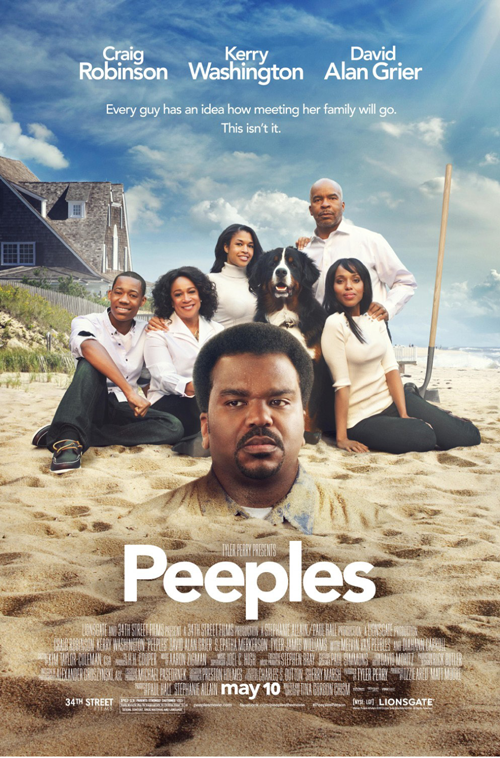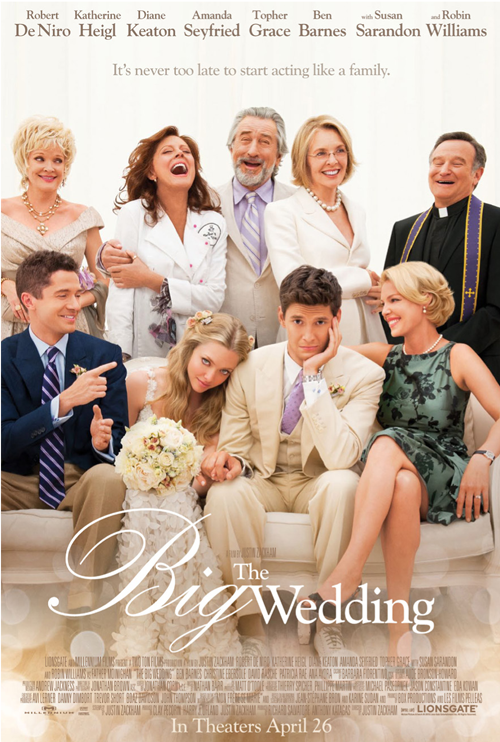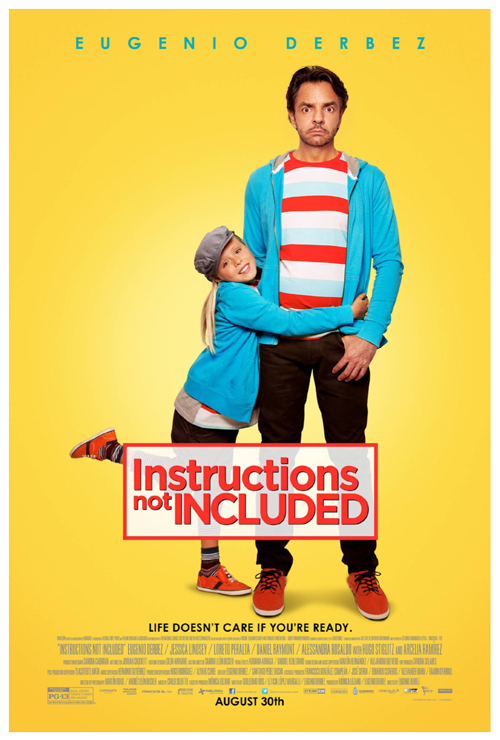The youngest of the film studios that GLAAD tracked this year, Lionsgate was originally formed in Vancouver in 1997, but has produced some of Hollywood’s biggest blockbusters in recent years. Since its inception, the company has grown greatly through acquisitions of other companies, including Summit Entertainment in 2012 which produced the highly profitable Twilight film franchise. This spring, Lionsgate announced the two would formally merge.
The very first film Lionsgate ever released was The Pillow Book (1997), in which Ewan McGregor costarred as a bisexual man, and the company has had quite a few other notable LGBT-inclusive films since then. These include Gods and Monsters (1998), But I’m a Cheerleader (2000), Urbania (2000), Lost and Delirious (2001), All Over the Guy (2001), Happy Endings (2005), Precious (2009), Albert Nobbs (2001), and The Perks of Being a Wallflower (2012) through Summit Entertainment.
In 2013, Lionsgate released its big budget adaptation of Ender’s Game, the popular science fiction novel series from right-wing activist and one time-National Organization for Marriage (NOM) board member Orson Scott Card. Though the film contained no anti-LGBT content, the studio’s professional association with Card was enough to incite public criticism. Lionsgate released a statement saying they did not agree with Card’s views and were “longtime supporters of the LGBT community,” and the film made little at the box office.
TYLER PERRY PRESENTS PEEPLES
Given Tyler Perry’s problematic handling of LGBT content in some of his other films, it's important to note his involvement in Peeples, even if he’s only listed as a producer in this case. Peeples follows an affluent African American family celebrating a reunion in the Hamptons, where the daughter’s less well-heeled boyfriend decides to crash and propose. One of the family members is another daughter named Gloria, who is there with her secret girlfriend Meg and struggling with the decision to come out to her family. Though Meg and Gloria’s storyline briefly plays into straight-male fantasies about threeways with lesbian couples, they have a significant presence throughout the film and are accepted without question by the other characters. This film signifies positive progress, especially for films heavily marketed to African American audiences.
![SRI_thebigwedding-500 | GLAAD]() THE BIG WEDDING
THE BIG WEDDING
Ensemble comedy The Big Wedding is about family secrets spilling out before a couple’s big day, and features Christine Ebersole in a minor role as Muffin, the racist mother of the bride. During the climactic family argument she reveals that her husband “doesn’t harp on [her] fetishes.” She then indicates this means her attraction to other women, and proceeds to make a pass at the main character played by Diane Keaton, referring to her as “delicious.” Not only is the moment played for laughs but her attraction to other women is referred to as a “fetish,” and Ebersole’s character more or less disappears soon afterwards. This does count as inclusion of a bisexual character, but she is certainly one who could have been better handled.
![SRI_instructionsnotincluded-4cd | GLAAD]() INSTRUCTIONS NOT INCLUDED
INSTRUCTIONS NOT INCLUDED
One of the first Spanish-language films to receive a major crossover marketing push from a big Hollywood studio, Instructions Not Included also went on to become the most successful Spanish-language film in U.S. box office history. Its success proved that not only is the American Latino community a potentially lucrative market, but they also aren’t the only audiences willing to go see a mass-appeal film in Spanish. It’s even more notable then that the film included a lesbian couple with a significant role in the film. Director Eugenio Derbez also stars in Instructions as a playboy whose life is turned upside down when an ex drops off a baby he didn't know he had. After years of heart-warming father/daughter bonding, the mother returns and reveals that not only does she have a female partner, but she also wants custody of her daughter back. The lesbian couple become the story’s de facto antagonists for the film’s latter third during the legal battle, though they are also presented in a largely humane light. Eventually the audience also sees the mother reconcile with both father and daughter, just before the film’s tragic conclusion, so their final impression of her isn’t a negative one.
Unfortunately the film also includes an earlier scene in which a line of women are auditioning for a role, and when one of the women is asked her name she replies “George” in a deep masculine voice. To complete the punchline, the two male characters running the audition look at each other with mild shock and simply say “next” in unison, leading the woman to make a comically annoyed face. This impression seems to be what the film considers a transgender woman, and she exists solely to be laughed at. Trans representation may be rare, but this is one “character” that should have been left on the cutting room floor.
SUBSIDIARY: ROADSIDE ATTRACTIONS
One of the subsidiaries of Lionsgate, Roadside Attractions, released the action drama Redemption about a homeless ex-special forces soldier who attempts to avenge the death of a young woman. The character at one point stumbles upon the vacant apartment of a gay photographer, and poses as the man’s boyfriend when he gets caught by the neighbors.
TYLER PERRY’S TEMPTATION: CONFESSIONS OF A MARRIAGE COUNSELOR
This cautionary tale depicting the dangers of women cheating on their spouses was decried as misogynist by many critics, not to mention additionally offensive for its depiction of HIV as a disease one gets for “sinning.” In the film, a happily married woman is seduced into an affair by a wealthy man, and in one scene her hapless husband runs through a debauched party to find her. The camera briefly shows a male couple dancing together among the other partygoers, all of whom are meant to represent the sinful, depraved lifestyle his wife has been led into. Given that we don’t even see the men’s faces and they are on screen for barely seconds, GLAAD did not count this brief image as inclusion, though it stands out as one more offensive element in a film rife with them.
LOOKING FORWARD
One of the qualities that has helped define Lionsgate’s success has been the studio’s savvy in identifying markets and franchise opportunities that more established Hollywood studios have overlooked or discounted. It’s good to see that some of their films marketed to minority audiences also contain significant LGBT characters, though the handling of the content still feels rough around the edges and sometimes falls into old stereotypes. Polls have repeatedly disproven the notion that U.S. minority communities are inherently more anti-gay than Caucasians. In fact, support for LGBT equality may actually be increasing at greater rates in those communities, and this should be reflected in films marketed to them. Lionsgate could produce some groundbreaking films in this regard, with more careful handling of their LGBT content.


 THE BIG WEDDING
THE BIG WEDDING INSTRUCTIONS NOT INCLUDED
INSTRUCTIONS NOT INCLUDED










